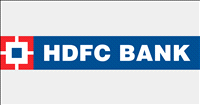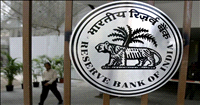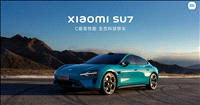Brand building: love in the time of likes
17 Aug 2017
 In this age of digital abundance, companies are finding it increasingly difficult to differentiate and stand out from the crowd. The connections in the digital world are so easy that a product or service is exchanged between various hands at the same time.
In this age of digital abundance, companies are finding it increasingly difficult to differentiate and stand out from the crowd. The connections in the digital world are so easy that a product or service is exchanged between various hands at the same time.
There are frequent new entrants and copy-cat businesses due to extremely low entry barriers. More often than not, neither the businesses have a clear product positioning nor do the consumers really understand what this product or company stands for. In this process, companies tend to become everything for everyone or nothing for anyone.
The plug and play nature of digital products is disintegrating established value chains. The go to market time in the digital world is also small, which further makes it difficult to remain 'unique' for a long time. Digital businesses interact strongly with each other through APIs and thus, consumers are consuming a mesh of such APIs.
There is an app of apps, a platform of platforms and a 'horizontal' of many 'verticals'. The network effect of consumers, suppliers and talent in the digital age creates almost perfect monopolies, thus making it very difficult for smaller players to survive. In such a scenario, building a brand as your key differentiator is much more critical than ever before.
Ease of entry = low brand recall?
The digital age provides almost perfect transparency in prices, services, product details and more. It's easy for a consumer to switch among products or services with few clicks and swipes.
The result is faster commoditisation of most products and services, leading to a price war and a huge pressure on returns on investment. Most of the business sectors have lost the advantage of arbitrage they once had from information asymmetry.
Consumers will always love continued low costs but that would not serve the purpose of any business in the long term. The ability to offer uniqueness in products for most of the companies is short-lived as it takes very little time to replicate a product or service. Also, earning loyalty from the today's consumers who have access to an array of choices from across the globe is getting tougher by the hour.
Thus, it's a vicious circle where easy entry or production is leading to low consumer loyalty or brand recall.
In the digital world of low-cost sameness, businesses need to find an emotional connect as their best differentiator. Due to the very virtual nature of digital businesses, the best way to connect with a consumer is to bring emotions into the mix.
When digital sameness drives down margins, eliminates differentiation, and commoditises offerings, the need for creating a brand through strong emotional connections becomes very important because in the digital connected economy, people talk about what they love and not what they like.
However, many young businesses today, in their quest to grow fast, don't pay sufficient attention to brand building. While growth hacking [conventional and unconventional marketing experiments aimed at business growth] and technical methods of growth are required, one should not forget the importance of brand building.
Growth hacking techniques should be used from the perspective of brand building. Short-term and trivial metrics via growth hacks should not affect the long-term goal of a brand.
Marketers and businesses should note that growth hacks and digital marketing are just ways of growth and marketing, and should be integrated with the overall brand building exercise.
While growth hacking and growth marketing techniques will get you the likes, it's the brand which will earn you the love.
One should understand that brands can't be built overnight. It's a philosophy and one needs to live every day in different aspects of product, design, marketing, customer delight, packaging, advertising, pricing and much more. Moving a brand from being an external factor to an internal one requires a change in mindset.
A holistic and conscious approach in offline and online media (paid, owned and earned) at every touch point with business stakeholders like consumers, suppliers, employees and investors can build a good long-term brand.
A brand is a story that is always being told…
To sum it up, we are all social animals who have loved listening to stories since childhood. So, simple storytelling is the easiest way of communicating, expressing emotions, and perceiving the world around us. Businesses also need to integrate storytelling as one of the key brand building exercises. Stories have always been part of any brand building exercise, just that the media format of these stories has kept evolving with time. Earlier it was more of TV, print and / or radio; now digital has become a key additional channel. As branding consultant Scott Bedbury, CEO of Brandstream, says, ''a brand is a story that is always being told''.
The romance of building brands is amazing. It is as relevant in the digital era as it was before. As someone rightly said, products are made in factories, but brands are created in the minds of the consumers. It's easy to replace products but not so easy to replace a brand. So, if you need love in this age of likes, focus on building the brand as building brand relationships is the ultimate love story for any business.













.jpg)






.jpg)









